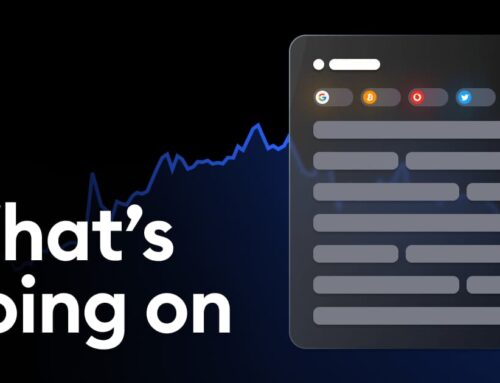Markets open lower after Trump lobs tariff threats at Apple and EU
May 23, 2025
Stocks tumbled on Friday after President Trump threatened to impose a fresh round of tariffs, this time aimed at Apple and the European Union.
The S&P 500 was down 48 points, or 0.8%, at 5,794 as 11:58 EST on Friday. The Dow Jones Industrial Average was also down 0.8%, while the tech-heavy Nasdaq shed 206 points, or 1.0%.
The shaky start on Wall Street followed a string of Friday morning posts from the president on Truth Social regarding his tariff policy. Mr. Trump first said that he would impose a 25% tariff on Apple if the company did not shift some of their iPhone production to the U.S.
Daniel Ives, a tech analyst from Wedbush Securities, called the move a “frustrating situation for investors” in a Friday morning research note. Apple stocks fell in early trading by 1.9%.
The president also posted that he would impose a “straight 50% Tariff” on the European Union, calling the group of countries “very difficult to deal with.”
“Our discussions with them are going nowhere!” he stated.
European markets reacted swiftly to Mr. Trump’s Friday morning shake-up. The Germany’s DAX fell 1.9%, while the CAC 40 in Paris fell 2.4%. London’s FTSE 100 also shed 1.1%.
Looking ahead, Gregory Daco, chief economist at EY-Parthenon, expects the markets to remain in a period of “extreme volatility” — especially with more tariff announcements on the horizon. “I think we should refrain from assuming that we’ve passed the worst in terms of trade policy announcements,” Daco said in a research note.
A 90-day pause on reciprocal tariffs will end on July 9, while a separate 90-day reduction in tariffs on Chinese goods will end in August. So far, the U.S. has publicly announced deals with China and the United Kingdom.
Yields on 10-year Treasury have eased after ticking up this week, as investors grow increasingly worried over the country’s debt burden, UBS said in a research note.
Moody’s Ratings downgraded the U.S. credit ratingon March 16. The downgrade from the top rating of Aaa to Aa1 “reflects the increase over more than a decade in government debt and interest payment ratios to levels that are significantly higher than similarly rated sovereigns,” the credit rating firm said in a statement that same day.
Meanwhile, a House Republican spending bill currently being shepherded through Congress is projected to add trillions to the nation’s debt.
Rising debt and the Trump administration’s ongoing tariff policies are creating two different realities for the equity and bond markets, according to Daco.
“The equity market is much more focused on the positives and the potential adaptation of businesses to a higher tariff environment and the positives of having more fiscal spending,” he said.
“The bond market is much more worried about persistent trade tensions, rising budget deficits and an unsustainable fiscal trajectory.”
Search
RECENT PRESS RELEASES
Related Post



